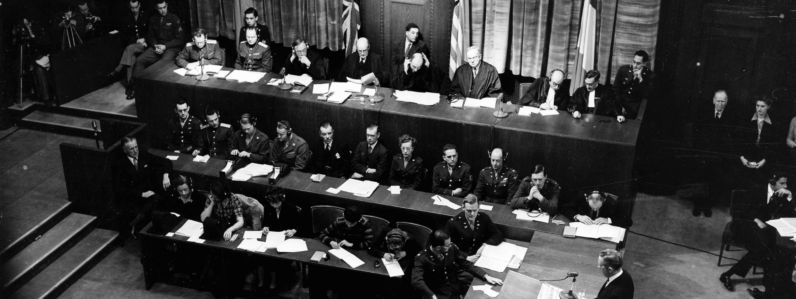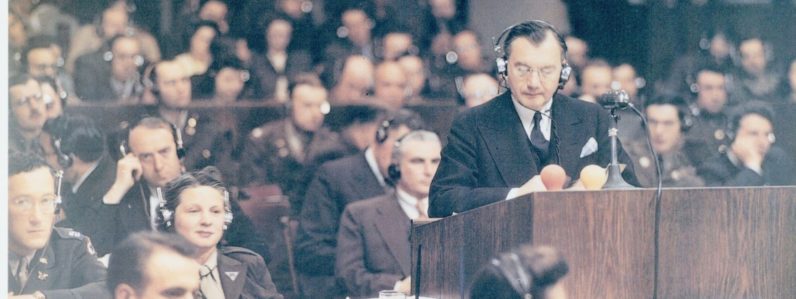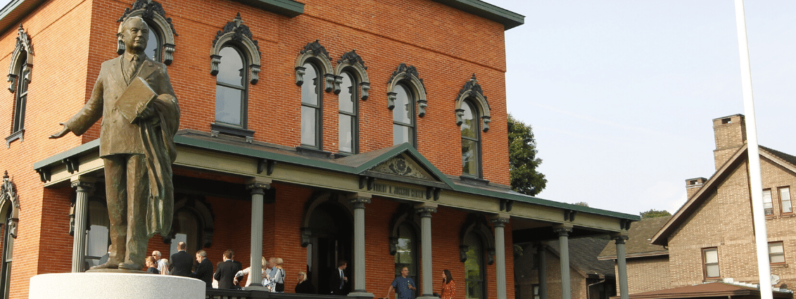I am always glad to appear before any function of the American Bar Association because long before I went to Washington I was active in the Association and was honored by it. I was one of the last chairmen of the conference of Bar Association Delegates which evolved into the House of Delegates, and the work of this Association has always been of interest to me. I think every man owes his best efforts to his profession.
It is presumptuous to talk about the problems of criminal justice to a group which has given so much closer attention to them. As a matter of fact, this Section due to the activities of your retiring chairman, Arthur J. Freund, and your Secretary, James C. Bennett, cradled this project of a Special Committee on the Administration of Criminal Justice. You know more about the needs, the shortcomings, and the difficulties in this field that I do.
I should be very disconsolate at the retirement of Mr. Freund and Mr. Bennett if I thought it really meant retirement. But I do not think it means retirement. You will be counting on them for services.
As for your new officers, if it is possible for men to inherit respect, Walter Armstrong, son of one of the oldest friends in this Association and your new Secretary, came to that heritage. But he has it in his own right for the work that he has done; and I know you are going to have a very successful future under his leadership.
Defective Criminal Justice
We know that the Bench and the Bar are both judged by the public on their performance in criminal cases. That is very unfortunate because there is no place where each fails so often to put its best foot forward as in criminal cases.
The judgment of the public is that we are found wanting. There have been many improvements in civil procedures, so many that is seems to me we are pretty well abreast of the times. But public condemnation of the delays, the uncertainties, and procedural defects of our criminal system is general. It often is uninformed, or the result of some particular instance of miscarriage of justice, either a conviction which rests upon uncertain grounds or an escape from punishment which the public feels is not based on any merit of the case.
I have often said that the real problem in criminal law is not the criminal; it is the good people. The difficulty is that our good citizens tend to sway between sentimentalism and savagery. When they get excited about a crime wave, the only thing that occurs to them is tough sentences and shortcuts to conviction. They utterly forget that the more severe the penalties, the stronger the urge to acquit, and the greater the difficulty of conviction. After a little period of toughness, the public suddenly gets sentimental about some case where the punishment seems severe. Then comes a period of laxity. If we could have a sound and consistent understanding among the law-abiding citizens of the difficulties and needs of this problem, I think society could take care of the evil persons much better. Our problem is much concerned with people who avoid jury service and then condemn the miscarriages in the courts, and with people who have no concern about the police force except when some dramatic crime arouses them.
Delay in Trial and Punishment
Now, it is easy to demonstrate from figures that there is a great disparity between known crimes and punishments inflicted. But there is more than that to the problem. How long does it take to convict a man? It takes much longer here than it does in England, and yet I am persuaded that the process in England is as protective of the rights of the defendant, if not more so than our own.
In other words, the lag, the delay that occurs, is not an assurance of better justice. In fact, I think it may be quite the contrary.
Then, after you have a conviction, how long does it take to get it validated on appeal, because we have pretty nearly reached the point where a conviction is presumptively bad until an Appellate Court passed upon it: I do not mean that literally, of course, but you know that the process almost automatically involves the delay of an appeal. Mere time consumed is sometimes cited as proof of the care we exercise. But you know that because a case in pending a long time does not mean it is being considered all that time.
Outside Forces Often Influence Jury Verdicts
I am not sure, on the other hand, that an innocent person is entirely safe in this country or that innocence is a sufficient shield; and there we face the very delicate problem of influences upon the trial form outside the courtroom.
Cases come before the courts in which I am not at all sure that the judgement of the jury has not been swayed by forces that avoid entirely the testing of the processes of justice. There is no worse enemy, in my judgement, of our American system that the person who would bring outside forces, either of sympathy or of hate, to influence jury verdicts.
We are troubled about the problem of fair trial- because there is a feeling in some quarters that it is a good thing to bring to the public prematurely every item of information that can be dug up to the discredit of an accused/
Confessions that were excluded by the trial court because they were obtained by methods that the law could not sanction have been given out by prosecutors and published and put into the homes of the jurors by way of radio and even television during the pendency of the trial.
Now, we can have all the protections from rules of evidence and other doctrines of fair trial in the courtroom but, if prejudicial material of that kind reaches the jury outside the courtroom even more effectively than if received inside the courtroom, then I do not see how we can feel confidence in the system of jury trial. If improper evidence is received in court, it can at least be answered, but if brought to the jurors’ attention outside it usually cannot be.
Blueprints for a Study of Criminal Process
These developments raise some very difficult problems, and it is nothing new that the Bar Association is trying to come to grips with. Back in 1921 we had a Committee on Law Enforcement, and it reported two difficulties- one was a discouraging dearth of official information, which was a great handicap in their work; and the other was that they had no funds of any substance. The individual members at their own expense went to Canada and studied the Canadian system and, so far as appears, almost nothing was done except what the individual members found time to do.
We have had crime surveys in various states and cities, very excellent ones in some instances, but they are loyal. The American Bar Association Committee of 1921 gave up any thought of a nationwide survey in 1923 and asked to be relieved because it was unable to get either funds or facts.
I think we face a better prospect now, the prospect of getting some funds, and I shall tell you about that situation.
We originally thought we would apply for all funds necessary to conduct a complete survey. We were asked how much it was going to cost, and we did not know. We could state a figure of any large sum that we should like to obtain, but we could not justify it. We did not know what such a project should cost because we did not know just what we were going to look for, nor just where we were going to look for it.
The Foundation to which we applied suggested a grant to plan the work instead of a grant to do the work and that we should make, on funds which they would provide, a blueprint of what we proposed to do. We accepted that at once as an eminently sensible procedure, because so many of these surveys, studies, and projects go off in all directions for want of adequate planning. So we accepted, gladly, I may say, a $50,000 grant for the mere work of planning a survey that would meet the needs of this situation.
As Mr. Freund has told you, Professor Arthur H. Sherry of the University of California Law School has undertaken to prepare the plan and he appeared before you the other day. I think you know something of his work in California with the Olney Crime Commission and I may say that the choice of Mr. Sherry was unanimous in our committee. And, as you know, a unanimous decision is a rare thing in my life!
Now, a little bit about our planning. We are in the stage of having decided that we want to build a house, but the site has not been selected and the blueprints have not been made. That is what we are no engaged in, and I am glad to have this opportunity to bring to you our tentative efforts at planning.
I am going to go a little farther than Mr. Freund. Your chairman said that you could get copies of this tentative report. I am going to thrust it upon you and ask Secretary Bennett and Mrs. Elsie Douglas to pass to the group here copies of this report.
I will not read it to you, and I hope you will not undertake to read all of it at the moment, but we may want to make reference to some particular items.
You may wonder why so much of our program at this stage is in question form, and the fact is that we, like the earlier committees that have struggled with this problem, find difficulty in getting facts.
I suppose the best information as to offenses in the United States is the Uniform Crime Reports published by the Federal Bureau of Investigation, and yet we find that the FBI feels under the necessity of warning everyone as follows:
“In publishing the data sent in by chiefs of police in different cities, the FBI does not vouch for their accuracy. They are given out as current information which may throw some light on problems of rime and criminal-law enforcement.”
Now, let us not yield to the belief that statistics themselves solve. As one of our consultants told us, they raise the problems. For example, we find a report that major crimes in the United States between 1951 and 1952 increased a total of 8.2 percent, and I have seen those figures published as an indication that there was almost 10 percent increase in the criminal tendencies in this country.
Of course, when you put the 8.2 percent beside the increase in population you have quite a different view of it.
Then, again, if you have an increase in a major crime like theft of automobiles, if you put it not only beside the increase in population but also relate it to the increase in automobiles that are left about the streets where they are available for theft you have quite a different picture so far as the tendency to crime is concerned.
In other words, we have to be careful in the use of statistics, and one of our first problems is to get all of the facts which contribute to an evaluation of particular statistics so that we will not be alarmists. Increase in the number of crimes does not always mean an increase in criminality.
So many of the subjects that perplex us are in question form, for what we really know is that a question exists for which we ought to find the answers.
And while I am on the subject of statistics I might point out that in one of the recent surveys of police work it was found that a change in the system of reporting, in order to insure accuracy, was instituted. The report says:
With that action the number of certain types of reported crimes rose by leaps and bounds, thereby demonstrating the cross inaccuracy of precious totals. Reported robberies rose by 400 percent; assaults with gun and knife by 200 percent; larcenies, 700 percent; while burglaries zoomed to a level that was 13 times higher than that prevailing in 1948 and 1949.
So, you see, there is a reason for be finning that the very beginning to try to get accurate facts and to evaluate those facts so that we will not be alarming people with statistical reports that have not been analyzed to determine their real meaning.
Scope of study
We propose to approach every phase of the criminal process that is the responsibility of the lawyer. We do not intend to go into sociological studies. I am not equipped in that field; neither is our Committee making any pretense of being so equipped, and those studies are being adequately pursued by others. We are not trying to find out why people commit crimes. Those are problems rather beyond our competence and beyond any funds we expect to get.
What we are trying to do is to take the crime as a fact. That is where the lawyer begins to be concerned. The police work involved in its investigation and its reporting is a great concern of ours, because only by competent police work can prosecution be well directed. From there we want to take each step in the process that courts and lawyers must go through and find out what the defects are. We are not doing this as a criticism of sitting judges. We know that some of them are very sensitive that any mention of defects in the process is a criticism of the courts. We want facts-·impersonal facts-as the basis of impersonal improvements in our system, and we are not going to discredit or embarrass individual judges, lawyers, or police officers.
We are not attacking the police forces of the country. As a matter of fact, I think it is sometimes shameful that we compensate our police forces as almost common, uneducated labor. In some of the cities the policeman is receiving less pay than any of the common laborers that he encounters on the street. We recognize that police work is and ought to be a profession. It is skilled, technical work, and the policeman ought to be valued by his community on the basis of a skilled and educated service.
So, if we criticize police work-and I have not the slightest doubt that in some phases it will be subject to criticism-it is not for the purpose of discrediting police. It is for the purpose of improving the police, just as our criticism of our judicial process is for the purpose of improving that process and not for the purpose of discrediting our institutions.
We find, also, a large gap between the number of estimated crimes and the number of reported crimes. We want to look into it. Why do people not report crimes? Embezzlements, perhaps, get settled; perhaps the relatives step in and settle. And it is what we may look upon as compounding of the offense, thereby avoiding the judicial process.
Sometime ago I read of a lawyer who advised his daughter not to appear as complaining witness in a rape case. I had a lot of sympathy with him. I am not sure, with the modern methods of publicity, that I would report a rape in my family. We need every possible incentive to disclose, not to cover up, crime. Instead, sometimes the punishment to the victim by the publicity about a crime might be worse than the punishment of the guilty. We must look into the problems involved in the failure to report crimes. I do not know what they will indicate.
Then, of course, there is another gap between the number of reported crimes and the number of arrests. How justified is the size of that gap? We know some of it is inevitable, but is it greater than necessary?
Then we have another gap between the arrests and convictions, and that, definitely, is the lawyer's problem. The gap between reports and arrests may be a police problem. We may shrug off some of that responsibility, but we cannot shrug off the responsibility for the gap between arrests and conviction. When there is an arrest, it implies that there is a prima facie case. Yet many times there is a complete failure to prosecute. Cases drop out for various reasons. Sometimes they get dismissed before the magistrate because the lawyer for the prosecution has not made an adequate presentation. Some get lost before the grand jury. Later indictments get dismissed, some of them, because they are incompetently drawn, some of them because the facts perhaps do not show a crime. Compromises are made by which some of the charges are withdrawn if the accused will plead guilty to others. Dismissals at the trial for want of proof and verdicts of not guilty or, more serious still, disagreements, account for the mortality of many more cases.
All of these steps we want to examine not with any preconceived remedies that we want to sponsor. Our Committee has strictly avoided any discussion of remedies, and we do not propose to go into that until we have the facts and report the facts to you and to the Association so that you will first have our survey of the merits and defects of the system before we take up remedies.
After conviction, after the trial is over, we find another gap between convictions and punishments. A lot of things happen after conviction. The trial judge may grant a new trial, oftentimes, usually I suppose, justified. Or the conviction may be reversed on appeal. There are also motions to correct sentence, then coram nobis, then habeas corpus. The chief justices of the states, as you have noticed, have been greatly concerned with the manner in which federal habeas corpus has been administered.
I notice in the chief justices' reports that where they followed the progress of particular cases to the time of remand they usually said, "We have no information as to what happened to the case." Well, of course, what finally happens to the case and what happens to the defendant is really the important thing which tells the story as to the usefulness and meaning of what went before.
I think Judge Jerome N. Frank would agree with me that we reverse cases sometimes on technical grounds, and we do not know what effect we are really having on cases we send back. Does it mean that in an overwhelming number of these cases reversal terminates the case with a release? Does it mean that the new trial corrects the errors and comes to the same result? We really do not know just what it is that we are doing, and we want to know. That is why we propose to inquire into such matters as that.
Then, there is the question of the time that all this takes. Our process is dreadfully slow. I know some people cite the lapse of time as an indication that great fairness is being shown to the defendant. Well, it is if a case is under active consideration. It is not if it is lying on the judge's desk and nothing being done about it. It is not if the time is spent printing volumes of evidence little related to the issue on appeal.
We certainly do no kindness to a defendant if he is given repeated stays, if he is going to be executed at the end of the process. In fact, I can think of nothing worse than the process of granting him delays and stays and raising his hope, then bumping him down, granting another stay and bumping him down again. In one case that I know of 13 separate stays were granted after the conviction-13 times that man was given hope, and 13 times disappointed. There is no kindness in playing cat-and-mouse with a convict.
We ought to determine as promptly as we can what the ultimate fate of an accused is to be, not only in justice to the public but in justice to the defendant. Repeated delays give the public the impression that there is serious doubt whether it was a just result.
Criticism of Study Invited
Now, we have put out this tentative plan to learn more about all these steps. It is a very tentative plan. We want persons interested in this subject-and we want more interested in this subject-to give us their criticisms. We want them to examine this plan and to notify our executive director of their criticisms of the plan.
We have to decide the site on which we will build our project. We will have to select certain states, because obviously we cannot go into all of the states. We want to select typical states for the study of the state systems. Of course, we shall study the federal system for comparative purposes.
You may think of things that ought to be examined that have not occurred to your Committee. Or you may think that we have gone too far afield, that we are going to get bogged down. I think that is one of the dangers. I am not sure but that we have outlined more than can be done, and one of the important things is to limit it. Tell us about it, because when this is finished we want it to be a lawyerly job for lawyers and concerning lawyers.
We want our report to have a sound basis of fact and to make sound evaluations. It will have to contain a good deal of opinion matter as to evaluation of the facts, but we want it to be on such a thorough and impartial basis that it will be respected in the editorial offices of the country, in all of the other societies and lay organizations that have to do with these matters.
We plan to cooperate with all of them and not to get into the fields that others are competently exploring. We want to concentrate on our own problem, which is the Bar and its performance of its duty to society in relation to punishment of crime.
Our next step is to make a more complete and definitive plan and present it to the authorities of the American Bar Association so that after we have selected the site-that is to say, the states in which we will work-we will have a blueprint agreed upon as to the things we are going to look for.
We do not want to start building our house before we have either selected a site or drawn our blueprint. The time to give us your help on the plan is in this period while we are working under this planning grant.
We hope, on the basis of our project as so planned, to get adequate financing. Lack of it has handicapped every committee and every section that has touched this problem. It takes staff, it takes help, and earlier committees never had adequate funds. But I think funds are obtainable if we come up with a plan that shows we deserve it, that we know what we are looking for, know where to look for it, and know what to do with information when we get it.
We want to see the Bar's part in this up to the standards for research which I think were set at their highest by Reginald Heber Smith's great study, Justice and the Poor. There was a text on which everybody could rely. We do not want to waste time or money building on quicksand.
We want something that will compare in this field with that. I know that is a very high aspiration, a very difficult one. We shall need the help of everybody who is interested in this problem.
Law is not a dead mechanical thing; it is a living entity which can adapt itself to the needs of the community. -Margery Fry






